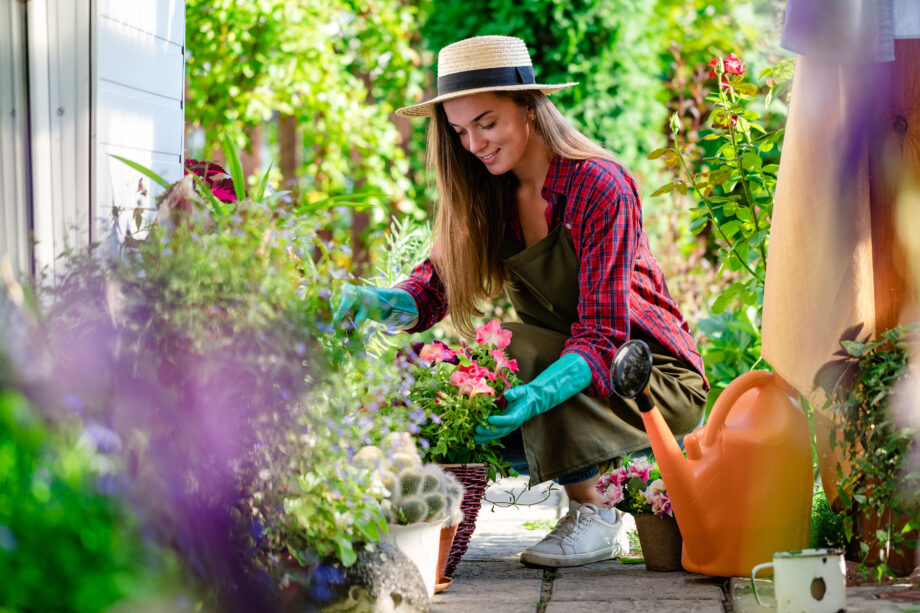As the weather warms up and spring transitions into summer, it’s time to start thinking about your garden. Whether you’re a seasoned gardener or just starting out, taking the time to prepare your lawn and garden now can lead to a more bountiful and beautiful harvest later on. Here are seven essential tasks to complete before June to ensure your garden thrives.
From planting flowers to growing vegetables, nothing grows on its own. That’s why it’s important to take the necessary steps to ensure your garden is set up for success. By following these simple tasks, you’ll be well on your way to creating your most beautiful garden yet. So grab your gloves and let’s get started!
Check Your Tools and Supplies
If you live in a climate that is not sunny or warm year-round, it’s likely been a few months since you last used your garden tools. Before you start gardening again, it’s important to check your tools and make sure they are in good working order. Make sure your shears are sharp and your gloves don’t have any holes. If you notice any problems, plan to replace them before you start gardening.
In addition to checking your tools, it’s also a good time to check your supplies. Do you have enough soil? Do you need new planters? Make a list of everything you need before you visit your local garden center. This will help ensure that you don’t forget anything and that you have everything you need to get started.
Start Weeding
To maintain a healthy garden, it is important to start weeding as soon as invasive plants begin to emerge in the spring. Lesser Celandine and Mugwort are two common invasive plants that can quickly overrun your garden if left unchecked. Be sure to remove them completely, including the roots, to prevent them from spreading. Regular weeding can save you time and effort in the long run.
Prepare Your Garden Bed
To ensure a successful garden, it is important to prep your beds ahead of time. Begin by carving out the space where you intend to plant. If necessary, amend the soil by checking soil testing available with your local Cornell Cooperative Organization. Plan the types of plants and quantities you want to install so that you can order them in advance. This will allow ample time for ordering and ensure that the nursery hasn’t sold out of what you need.
Prune Flowering Shrubs
If you have flowering shrubs like lilac, viburnum, or ninebark, it’s important to prune them immediately after blooming. This is because most spring-blooming shrubs set their new buds for the next year shortly after blooming has finished. Pruning at this time ensures the shrub maintains its shape and encourages healthy growth.
Plant Dahlia Bulbs
If you want to enjoy beautiful dahlias in your garden, now is the perfect time to plant them. Here are some tips to help you get started:
- Choose a sunny spot in your garden with well-draining soil.
- Dig a hole about 6 inches deep and place the dahlia bulb in it with the pointed end facing up.
- Cover the bulb with soil and water it well.
- Keep the soil moist but not waterlogged.
- As the dahlia grows, provide support with stakes or cages to keep it from falling over.
- Deadhead the flowers regularly to encourage more blooms.
By following these simple steps, you can enjoy a colorful and vibrant dahlia garden all summer long.
Treat Roses
To prevent black spots from ruining the beauty of your blooming roses, treat them with fungicidal spray in the spring. This simple step can stop this unsightly issue and keep your garden looking its best.
One to Skip: Leave the Stalks
If you’re thinking about cutting back your garden, it might be best to hold off on cutting those stalks. Native bee species hibernate in hollow stalks like Joe Pye Weed or bury in the ground under leaf piles over the winter. To ensure the safety of these pollinators, wait until the weather consistently reaches 50 degrees and the hibernating pollinators can emerge and fly safely. Instead of cutting back, consider leaving those cut stalks bunched together in a safe location on your property.







